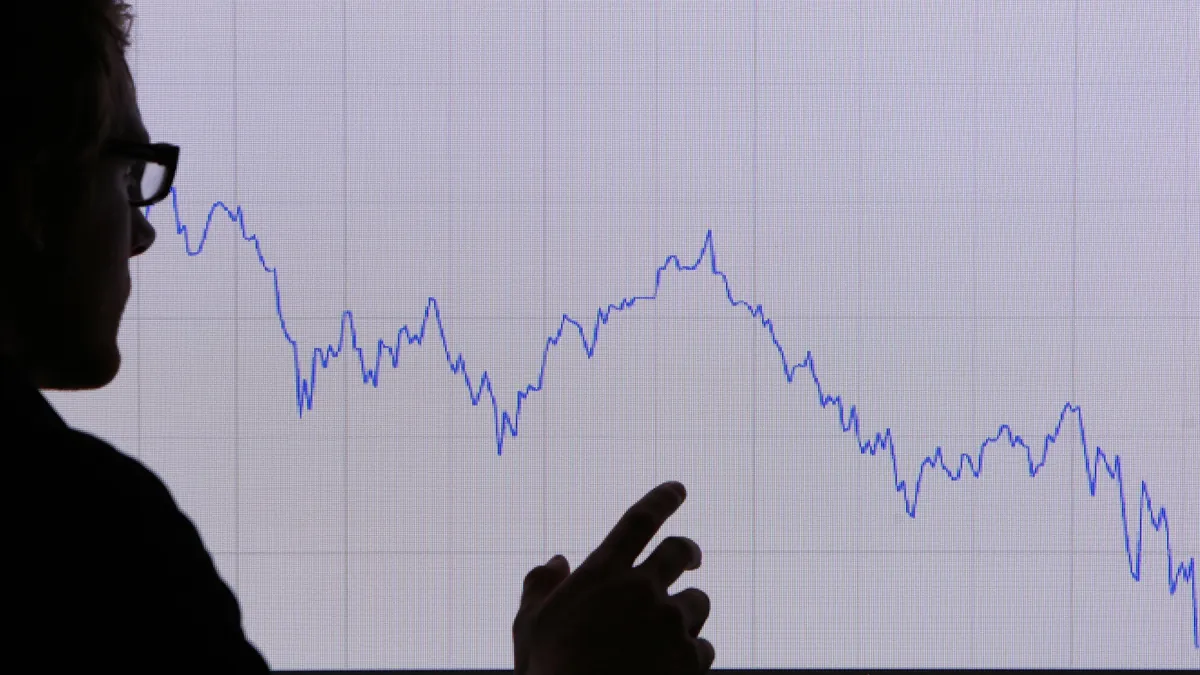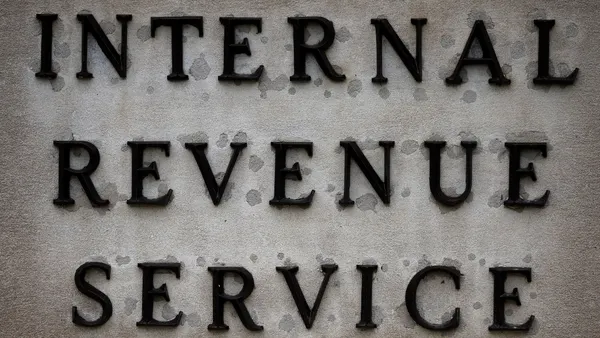Dive Brief:
- Companies battling consistent labor and material shortages are bracing for recession, according to a recent survey by the National Association for Business Economics (NABE) indicating that more than five out of 10 respondents expect a downturn in the next 12 months. Eleven percent said the economy is already in recession, according to the NABE survey.
- Companies are hiking prices, the survey of 55 NABE members found, as a decline in consumer spending erodes profit margins. Survey respondents identified rising interest rates and increasing cost pressures as the leading downside risks to the business outlook.
- Rising wages remained a top challenge for businesses, with the third-highest number of respondents (63%) reporting rising wages in the survey’s history, NABE Business Conditions Survey Chair Jan Hogrefe, chief economist, Boeing Commercial Airplanes said in a statement.
Dive Insight:
While many financial leaders and experts have pointed to the increasing likelihood of recession given market factors such as a decline in consumer spending, experts disagree over when a recession is likely to begin.
A recent report by Fitch Ratings predicts the U.S. economy will slide into recession by Q2 2023, for example, while some NABE respondents believe a downturn has already started.
Companies are therefore identifying top risks ahead of a possible contraction. Thirty-one percent of respondents pointed to higher interest rates as a leading risk, while 16% said the same of unspecified cost pressures.
NABE members also reported plummeting sales growth for their companies during the third quarter of this year, with the Net Rising Index (NRI) for sales tumbling to its lowest level since mid-2020, according to the survey which was conducted between Oct. 3-10.
Going forward, though, more members expect to see their sales increase than decrease — the number of respondents expecting continued high inflation is about twice the number of those expecting disinflation, according to the survey. Respondents’ outlook on the future has also worsened.
Fifty-two percent of respondents indicated their companies had increased prices in the third quarter, up by nine percentage points compared to a previous NABE survey in July. Forty-four percent also expect to see continued increases, according to the survey, which represents a six percentage point decrease from July’s figures.
Meanwhile, most companies have successfully passed on rising costs to consumers, with 69% stating all or some cost increases have been passed along while approximately a quarter said they were not.
CFOs are beginning to doubt that they will be able to continue to move costs to the consumer in the long-term, CFO Dive previously reported.
Prices are also continuing to inch upwards as companies grapple with ongoing wage pressures and shortages of materials, though NABE respondents reported a drop in material costs during the third quarter.
The tight labor market has continued to bump up wages, however, with 63% of respondents stating wages had risen at their companies over the past three months — a jump from the 55% who said the same in NABE’s previous survey.
Wages have increased even as the Federal Reserve raises interest rates in a bid to reduce soaring inflation. The Fed has hiked interest rates by 75 basis points during each one of its last three meetings, and it is expected by many to announce a similar increase at the end of a two-day meeting on Nov. 2. A basis point is one-hundredth of a percentage point.
The number of job openings still surpasses the number of individuals looking for work, according to Oct. 4 data released by the Labor Department. Companies are also still grappling with a shortage of both unskilled and skilled labor, with 22% of those surveyed expecting such shortages to persist until the second half of 2023, according to the NABE survey.
Nearly a quarter of survey respondents (24%) reported a gap in unskilled labor at the firms, while 44% reported a shortage in skilled labor, according to the survey.












